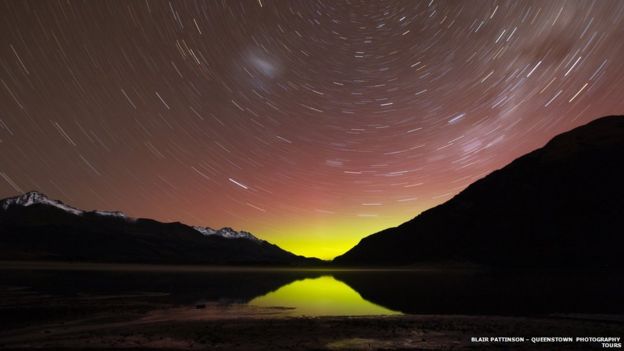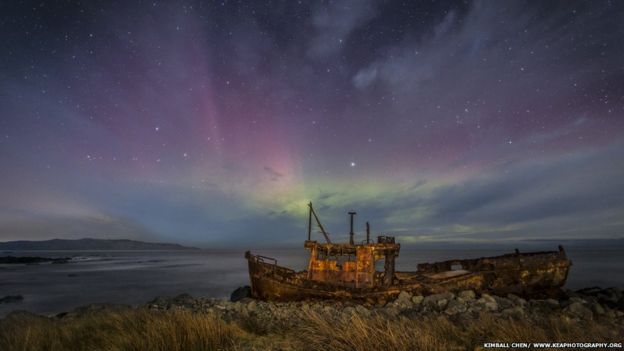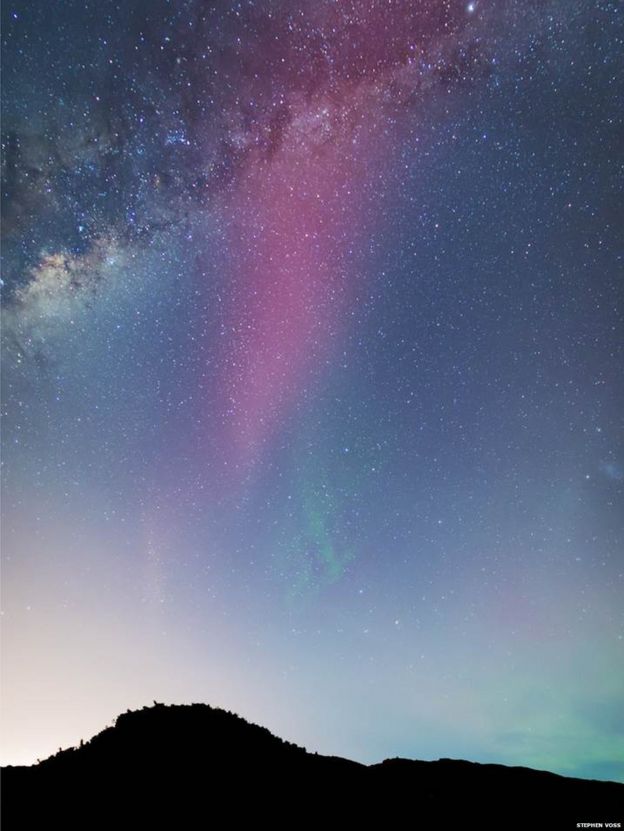
A solar storm meant that the Aurora Australis, the southern counterpart of the Aurora Borealis, was visible much further north than it usually is.
Aurorae occur when cosmic rays or solar wind interact with the earth's upper atmosphere.
The aurora is forecast to be active again on Thursday night.
Earlier this week many New Zealanders braved the cold to capture images of the phenomenon.

Blair Pattinson, a photographer from Queenstown is part of a community of "aurora chasers".
"When you look at places [like] Finland, Iceland, North Canada, northern lights are very common," he told the BBC.
"We see it more as a treat, when you see
an aurora that is strong enough. It's quite special. Many people wait years before they see them."

Stephen Voss, a medical practitioner based at the southern tip of New Zealand's South Island, has been chasing aurorae for the last 15 years.
"There is one word to describe the experience of every New Zealander who was out photographing the aurora this week ...freezing," told the BBC.
"We've had our coldest week of the winter this week with the entire South Island dropping well into sub-zero temperatures overnight."
No comments:
Post a Comment